UMMC battles barriers to training more OB-GYNs
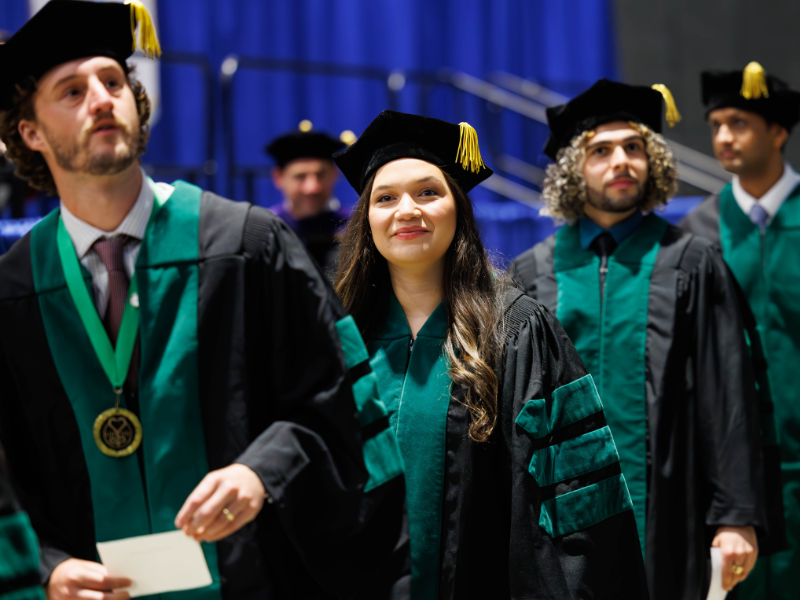
Editor’s Note: Throughout this series about maternal health, we will take a closer look at the University of Mississippi Medical Center’s work through its three-part mission of education, research and health care to address the state’s maternal health crisis. These stories, which will be part of an occasional series examining the state’s only academic medical center’s role in fighting some of the most pressing health issues, share the experiences of caregivers, researchers, patients and learners. We hear from those affected by maternal health challenges and from those who are fighting against them in the hospital room, lab and classroom.
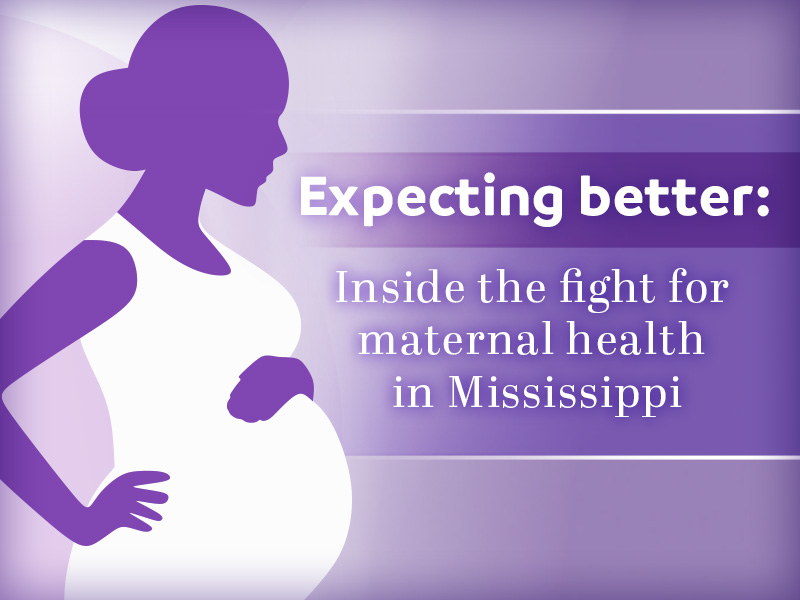 If Dr. Adrian Oudomrath Speyrer ever had doubts she was destined to become an obstetrician, they disappeared the moment she helped deliver her first baby.
If Dr. Adrian Oudomrath Speyrer ever had doubts she was destined to become an obstetrician, they disappeared the moment she helped deliver her first baby.
“I was on my medical school rotation,” said the resident training in OB-GYN at the University of Mississippi Medical Center, “and I was overwhelmed with joy. I had chills, nearly tears, and this powerful, serendipitous feeling came over me: ‘I’m so happy. I need to do this for the rest of my life.’”
This points to an embarrassment of riches confronting the practice of OB-GYN. The birth of a baby enchants so many others who are eager to be in Oudomrath Speyrer’s shoes – too many.
There are too many because of a nationwide system that doesn’t have room for all those who want to serve on the front lines in the struggle to improve the state of maternal health care, including in Mississippi.
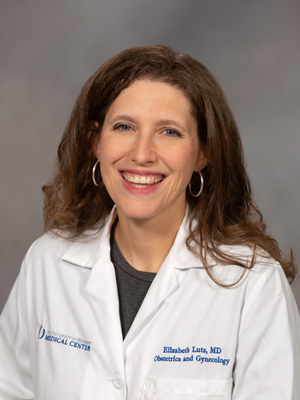
“It’s not an issue of drumming up more business; it’s booming,” said Dr. Elizabeth Lutz, associate professor of obstetrics-gynecology and director of the OB-GYN residency program at UMMC.
“There are more medical students going into OB-GYN than ever before. But there aren’t enough residency slots in the country for them. National data for last year showed that only 70% of students who applied for an OB-GYN residency were able to get one.
“There are way more applications than there are OB-GYN positions, including at UMMC.” For now, at least, there are only a half-dozen new spots available each year.
Oudomrath Speyrer, for one, managed to secure a prized position. A May graduate of the UMMC School of Medicine, she has started her specialty training at the Medical Center. And she does consider this a prize.
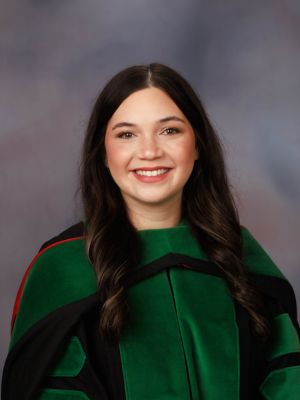
“When my first OB-GYN shift began as a medical student, it felt like stepping onto the field for the Super Bowl,” she said. “I had dreamed of a career delivering babies for as long as I could remember, and suddenly, that dream was right in front of me.
“From the very first shift on Labor and Delivery here, medical students are expected to introduce themselves to patients, review charts and be prepared to assist with deliveries – always with the patient’s permission. I love that.
“I appreciated the program even more after doing an away rotation. I thought that UMMC students got a more thorough experience and gained more knowledge compared to OB-GYN rotations elsewhere.”
Making sure medical students have a good experience is a “passion” of Dr. J. Martin Tucker, UMMC professor and Winfred L. Wiser Chair of Obstetrics and Gynecology.
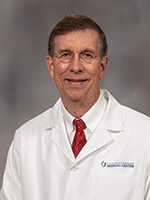
“They spend six weeks with us – that’s our one chance for our students to receive a favorable impression of us. We want them to have an interest in, and decide on, OB-GYN as a career,” Tucker said.
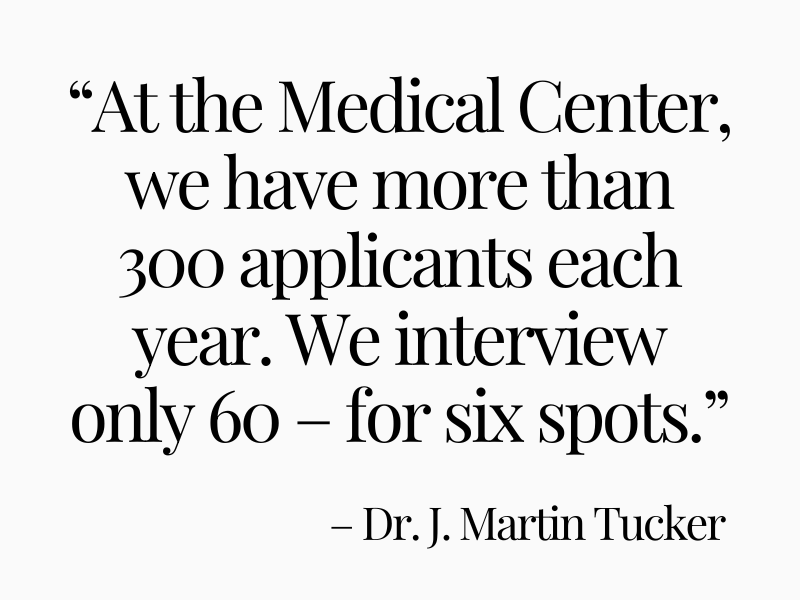 “It’s a very fulfilling profession. I would never discourage anyone from going into it. But it is a very hard residency program; very time-consuming.”
“It’s a very fulfilling profession. I would never discourage anyone from going into it. But it is a very hard residency program; very time-consuming.”
And yet, all the residency spots fill up quickly here and nationwide, he said. “At the Medical Center, we have more than 300 applicants each year. We interview only 60 – for six spots.”
When it comes to recruiting, the main push is to get residents to stick around, Lutz said. “We prioritize a connection with Mississippi. So, we do keep a lot in the state. Here, we have only four graduating residents this year. Three of those will stay in Mississippi.”
This year, on Residency Match Day, nine UMMC students announced their residency match in OB-GYN, Tucker said. “We have a total of 22 residents in OB-GYN; 14 are UMMC graduates. Many, if not most, of our students stay in the state.”
Oudomrath Speyrer is one of those. “To me, this OB-GYN residency program is one of the best in the South,” she said. “The faculty and staff not only recognize passion, they also invest in you.
“I feel very blessed to be part of the incoming class.”
Oudomrath Speyrer, whose father immigrated from Laos, is a second-generation American who was impelled to become a physician after witnessing health care obstacles facing the first.
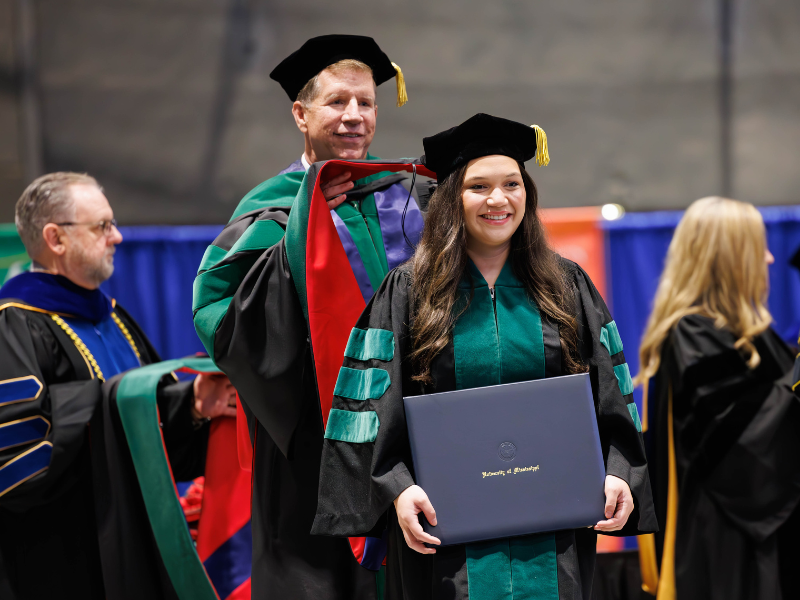
“I was brought up in Louisiana, in Iberia Parish, where there is a large Laotian community,” she said. “I saw many patients from there struggling to navigate prenatal care.” Fluent in the Lao, she acted as their interpreter during their doctors’ visits.
Moreover, as a college student at the University of Louisiana-Lafayette, she saw how a breach in health care access even affected women whose families had been in this country for generations.
“Until I volunteered with the New Orleans Women and Children’s Shelter, I had never visualized the possibility that there are women in this country who don’t have access to basic health care products, including menstrual products,” she said.
“We brought boxes of essential items to housing units in New Orleans East. The women who received them were so appreciative. Seeing even more of those scenarios elsewhere made me want to be part of the attempt to bridge that significant health care gap.
“So, I’ve been chasing my interest in women’s health a long time. It was the reason I came to medical school.”
If possible, that attraction became even more irresistible in April, when Oudomrath Speyrer delivered her own baby – her first.
“It was an eye-opening experience,” she said. “I believe I have a lot more empathy for expectant mothers now.”
But making room for more trainees like Oudomrath Speyrer is a persistent challenge in Mississippi. “UMMC has the only OB-GYN residency program in the state,” Tucker said.
“OB-GYN residency requirements are very procedure oriented. So, in order to be able to train more, we have to have x number of procedures to be able to justify increasing the number of residents.
“Once we do that, we are going to be maxed out as far as the number we can train.”
Providing effective prenatal care starts with good residency programs, Oudomrath Speyrer said. “We are doing a disservice to moms and babies when we don’t have enough residency spots.”
Maintaining, and adding, residency positions depend in great part on assistance from the federal government, specifically Congress – which, almost 30 years ago, capped the number of slots for all specialties. The largest funder of residency programs is Medicare.
States and institutions can fund more positions. “But that is a tough pull,” Tucker said. “If other centers want to start a residency program, they must offer a certain number of clinical cases, enough research projects and more if residents are to be trained adequately.
“It’s very hard to start something like that.”
Meanwhile, UMMC is seeking, and realizing, more training opportunities, Lutz said. “That includes mentorship programs and community rotations.
“We have also expanded our reach by adding a preliminary, transitional year: That gives us an extra trainee. After a year, that intern then transfers to an OB-GYN program elsewhere for their second year.”
Additionally, in April UMMC received approval from the Accreditation Council for Graduate Medical Education to start a rural residency track program for OB-GYNs. Each year, the program will gain one more trainee – who will spend just over two years at Memorial Hospital Gulfport.
Interviews for the program begin this fall, Lutz said.
“One resident per year, to start,” Tucker said, “but it could grow into something bigger, possibly to two or more in the future.”


